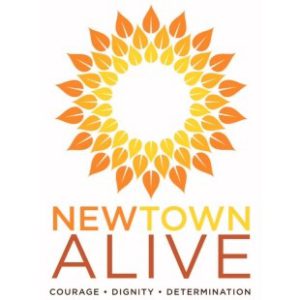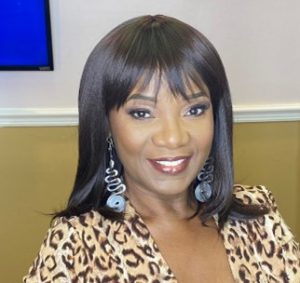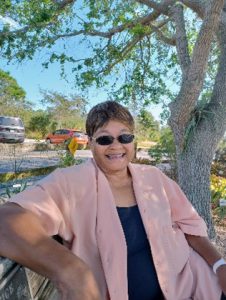I am so honored to celebrate Black history and sustainability during one of my favorite months of the year – Black History Month! To celebrate I am highlighting a few residents that have changed and continue to change our community for the better, a key organization that strives to preserve local Black history, and the contribution of Black Americans to the environmental justice movement.
What Black History Month Means to Me

Black History Month is a very special and thoughtful time of year for me. It’s a time to rejoice and reflect on all those who have paved the way for a more sustainable future for our society and environment. It’s an opportunity to highlight and acknowledge the many contributions and the sacrifices Black Americans have made and continue to make in the pursuit of environmental justice. It is a chance to think about resilience in a different light. But most importantly, it means embracing and celebrating my own blackness and the diversity of our people and culture.
The Environmental Justice Movement is Rooted in Black History

Environmental justice is the unequal access to a clean environment and basic environmental resources that primarily affects communities of color. Black Americans are disproportionately impacted by environmental hazards and are far more likely to live in areas with heavy pollution. People of color are also more likely to have health issues such as asthma, and many people who live close to hazardous waste are people of color.
According to the Environmental Protection Agency, the onset of the environmental justice movement began in Warren County, North Carolina in 1982 when a small, predominately African American community was designated to host a hazardous waste landfill. This landfill would accept PCB-contaminated soil that resulted from illegal dumping of toxic waste along roadways. In response to the state’s decision, the National Association for the Advancement of Colored People (NAACP) and other groups protested with over 500 people being arrested. While the Warren County protest failed to prevent the siting of the disposal facility, it did provide a national start to the environmental justice movement.
Environmental Justice: Close to Home
Newtown is an African American neighborhood that is experiencing environmental justice issues right in our backyard. There are six industrial plants located between Myrtle Street and Orange Avenue in northern Sarasota County. These plants are near the Newtown and Bayou Oaks neighborhoods and Booker High School and store large, uncovered piles of concrete dust on their properties, which enables the dust to fly freely offsite. Residents are concerned that the dust is causing damage to roads, groundwater, air quality, and mostly the health of nearby community members.

The Multicultural Health Institute (MHI), located in the heart of Newtown, has facilitated numerous community-based research and advocacy initiatives there for thirteen years. In 2018, MHI helped form a Newtown advocacy group called The Newtown Health Disparities and Environment Collaborative to address longstanding concerns about health effects of air and water pollution from industrial facilities across the street from the neighborhood’s high school. Between April and December of 2018, the Collaborative compiled preliminary public health data, conducted exploratory research into community perceptions and concerns, and brought these findings to the attention of the wider community and local government bodies.
In order to boost community awareness, collaborative members created a flyer detailing the appropriate situations in which residents can call Air and Water Quality, and distributed flyers at community events.
As a result of these studies and increased public awareness, Sarasota and its municipalities have begun trying to correct the mistakes of the past and prevent future issues. For example: One of the plants purchased a tire washer to prevent trucks from carrying dust from facility grounds into the road. There are plans to increase street sweeping on Myrtle St. from once every few months to once every other week.
Newtown Alive: Explore the History and Cultural Heritage of Newtown

Newtown Alive is a deeply meaningful local organization that works to preserve local Black History about Newtown and Overtown through archives and repositories. Their amazing work has produced over 400 primary and secondary source documents about life in two of Sarasota’s oldest communities. They also highlight the major role African American residents played in the development of Sarasota and provide interactive trolley tours that showcase the history of Sarasota’s earliest African American Pioneers.
Sarasota County Sustainability staff was honored to join Newtown Alive on a trolley tour, and really appreciated the opportunity to connect with community leaders who promote equity and preserve African American history in our local community. Learn more about Newtown Alive and book a trolley tour at: http://www.newtownalive.org/

While Newton Alive laid the foundation and continually produces historical resources, another initiative by the Sarasota African American Cultural Coalition, is working to open the historic Leonard Reid House- Sarasota’s first freestanding Black arts, culture, and history center. The house is historically significant for its association with Leonard Reid, who was a highly respected early Sarasota African American pioneer who played an important role in the establishment and settlement of Sarasota’s earliest African American community. Renovations are currently underway, and I personally am really looking forward to visiting once opened.
Highlighting Local Leaders in Sarasota County
From activists to community leaders and volunteers, we are shining a spotlight on the contributions of local African Americans in Sarasota as we celebrate Black History Month.
Vickie Oldham:

Vickie Oldham M.F.A. is president and CEO of the Sarasota African American Cultural Coalition, Inc. She works to preserve local Black history and to open an art center and history museum. The precursor of this historic preservation initiative is “Newtown Alive.” Led by Oldham, the project traces the history of Newtown, one of Sarasota’s oldest communities. Newtown Alive products include a research report, a book, historical markers, a documentary short, a guided trolley tour, traveling exhibition, walking tours, a mobile app, oral history interviews, an inventory of historic structures, a podcast series, and newtownalive.org, the official website. Visit Sarasota County named Ms. Oldham the 2020 Voice of Tourism. Personally, I am beyond inspired by her and feel a deep sense of gratitude for her relentless efforts to uplift our local African American community.
Katie Doss:
This is a tribute from Judith Kendall to a wonderful person, who made a difference in her community with her service and her spirit: Katie Doss.

“We met in 2016 both working as Master Gardener Volunteers for the University of Florida, Sarasota County Extension office. What a blessing it was that she signed up for the Plant Clinic at Venice Lowe’s one day and we got to give horticultural advice to customers as a team from there on. In fact, she dedicated many hours of her week to helping with the Demonstration Garden at Shamrock Park in South Venice and even joined the Executive Committee of the Master Gardener Volunteer Organization. Katie was always cheerful and uplifting, even after her tragic diagnosis with cancer. For her, it was all about her family, and she had countless stories to share about her husband, her many relatives, her grandkids, and even great grandkids! Katie deeply cared about people, she loved gardening, and she loved life.
Katie, you leave a void on earth. But we will always remember your positive attitude and dedication and be better people because of you.” Your friend Judith Kendall.
Black History Month, Every Month
It’s important that our activism, support, and education continues past this holiday. This month and every month are a time to celebrate Black history and culture. Below are a few additional resources to learn more about Black History and Culture.
- Embracing our Differences
- Sarasota African American Cultural Coalition, Inc.
- Manasota Association for the Study of African American Life and History (ASALH)
 3
3
